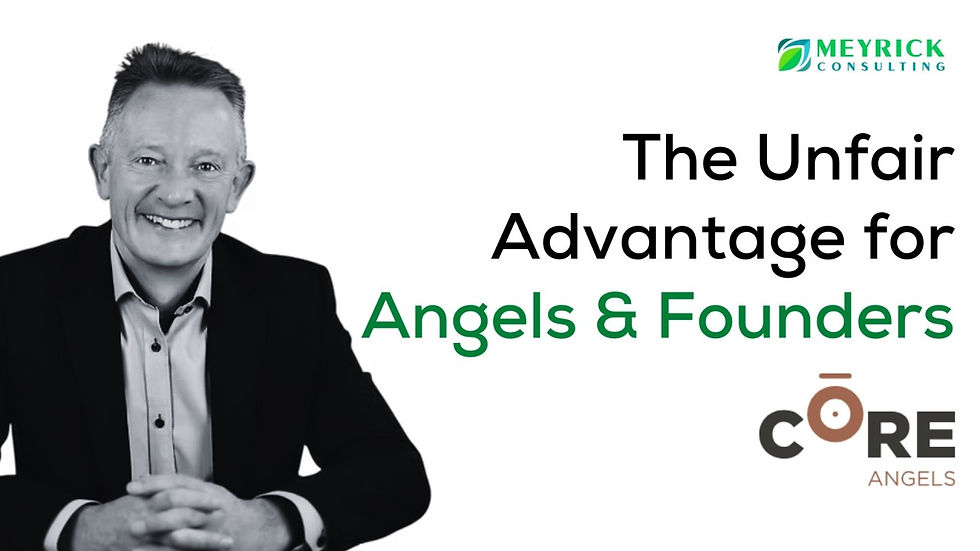Enrico-Glasbest oils Bertolli’s wheels
- Meyrick Consulting

- Jan 18, 2021
- 4 min read

How sustainable Private Equity underpins the brands we love
The recipe may well be ‘simple’ according to Bertolli, but finances are anything but in the contemporary world of finance.

At the beginning of 2021, Unilever’s Bertolli brand is going to Enrico- Glasbest bringing their turnover nudging towards the €50 million mark. Food is big business and pesto, pasta sauces and mayonnaise are all things we seem unable to live without, especially in northern European countries. I guess it’s all the chips with mayo in Belgium!
Photo: Roberta Sorge
However, this dependence gives great returns to private equity investors that are looking for security in these challenging times. Certainly Enrico-Glasbest know the Bertolli brand will fit perfectly into their existing stable of ingredients.
Often, as consumers, we are easily seduced by the soft-focus rural idyll these brands choose to portray. Bertolli’s old ads were all about family, tradition and passion but actually it also takes food and agri growth investment funds to keep the wheels oiled (see what I did there?)
This specific acquisition was made possible financially by Victus Participations and also Rabobank
Victus Participations is actually the sole independent food & agri growth investment fund in the Benelux with growth and buy-out capital. They have understood the opportunities and crucial economic role the food and agri sector plays both now and in the future and they’ve made this niche their focus. They are also keen to accelerate growth along to a company’s next S-growth curve. This continues a trend as since 2013 they have been involved with Frigilunch producer of frozen ready meals, Anur Halal food, Enrico-Glasbest, and also companies providing the tech and infrastructure this fast-moving area requires.
Rabobank is the 2nd largest in the Netherlands

Rabobank, on the other hand, is a Dutch multinational banking and financial services company, that has amassed a reputation as a global leader within the same food and agri sector. In fact, in terms of total assets it is the second largest bank in the Netherlands. Their philosophy is particularly interesting as they support the ideas purported by a cooperative movement founder, Friedrich Wilhelm Raiffeisen. He opened the first farmers’ bank in Germany back in 1864. Through charitable aid he worked towards self-reliance as being an alleviator of poverty among rural families. In this respect he created Darlehnskassen-Verein (Loan Association) that collected rural savers’ money and then provided enterprising farmers with loans. Photo: Calum Lewis
Even now the strapline on Rabobank’s website is Growing a Better World Together
They are actually true to their philosophy, having been recently linked to the largest-ever sustainability linked loan for a commodity trader. The sum involved was actually $2.3 billion. Rabobank is one of 21 banks that have joined together and outlined significant sustainability targets to promote sustainable commodity trading and they act as Sustainability Coordinator. This is a true example of how business operations, finance and sustainability are being linked together to demonstrate tangible ESG (environmental, social and corporate governance) developments that continue to gain credibility, desirability and importance. People have indeed appreciated the work this group have undertaken and in 2020 it won the TFX Overall Commodity Finance Deal of the Year Award.
Unilever’s managers of Bertolli have said that they recognise the significant potential to develop and create even more value
They also see the importance of paying more granular attention to investment streams and also upping their potential with respect to innovation and quality. This is definitely a trend as cleaner-label formulation of familiar products are already being rolled out. Yes, this is also driven to a certain extent by consumer interest however private equity money is also a consideration. With private equity funds on board so much more can be achieved, and acceleration is easier and speedier. It also means there are a huge number of new entrants that are really shaking things up, especially in the vegan and meat free space.
Private investors want a slice of this pie

With private equity onboard, companies don’t have to be wealthy off their own bat to succeed. This is exciting and makes for a very robust industry. I know this to be the case as food and drink companies are hiring and are making incredible progress I spite of the pandemic and the difficult trading conditions. Therefore, it is not a surprise that private investors want a slice of the pie (!) after all, demand remains pretty constant regardless of what happens around the space and beyond. Also, investors are consumers themselves and there is an element of excitement about owning a well-known brand that happens to be their favourite. Photo: Sheri Silver
Personally, I think the brand to watch is Daring
I am particularly excited to chart their continued progress. In fact, I shall be interviewing their CEO Ross Mackay again for an update after writing about their amazing success last year. If you missed it catch up right here. Meanwhile if I can assist you in finding exceptional talent to push forward your food and beverage company please do not hesitate to contact me, I would love to help you make 2021 the best business year ever.





Comments